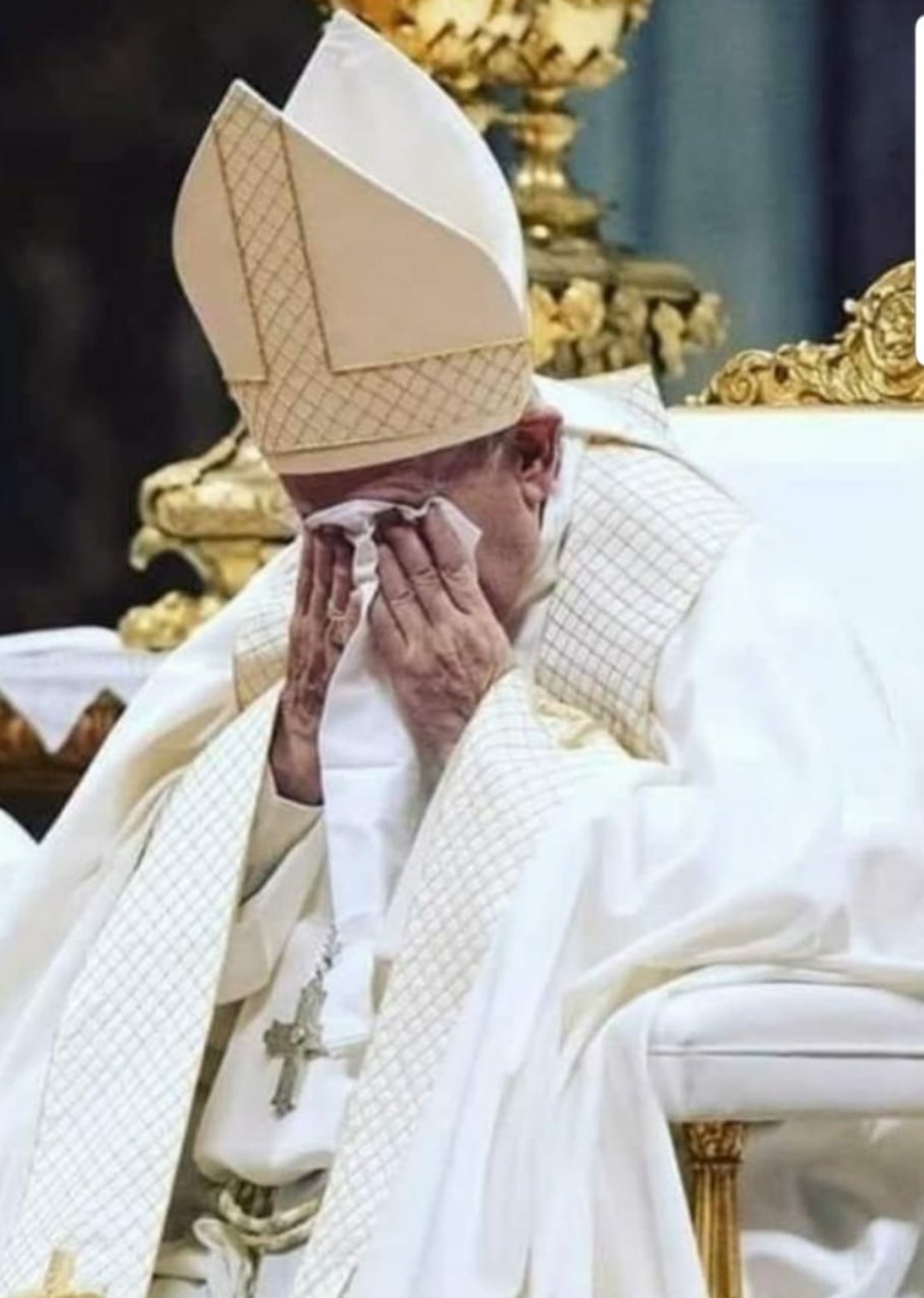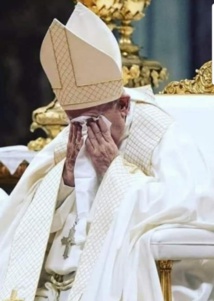All papal events for Holy Week, the seven-day period leading up to Easter Sunday, are taking place with no public audience due to novel coronavirus restrictions.
"For many, this is an Easter of solitude lived amid the sorrow and hardship that the pandemic is causing, from physical suffering to economic difficulties," Francis said in the "Urbi et Orbi."
The papal message and blessing, meaning "to the city and to the world," is usually imparted at Easter, Christmas and after a papal election.
Francis gave it standing alone in the middle of the basilica, instead of from its balcony, after an Easter Mass that took place indoors, in the presence of a few priests, rather than in St Peter's Square.
"Today my thoughts turn in the first place to the many who have been directly affected by the coronavirus: the sick, those who have died and family members who mourn the loss of their loved ones, to whom, in some cases, they were unable even to bid a final farewell," he said.
Francis called on Jesus to "grant strength and hope to doctors and nurses, who everywhere offer a witness of care and love for our neighbours, to the point of exhaustion and not infrequently at the expense of their own health."
He urged political leaders to "work actively for the common good, to provide the means and resources needed to enable everyone to lead a dignified life and, when circumstances allow, to assist them in resuming their normal daily activities."
His Easter message, traditionally centred on world peace, called for relaxing international sanctions and offering debt relief to the developing world to help even outcast and poorer nations face the pandemic.
Francis also spoke of an "epochal challenge" for the European Union, urging it to "not lose the opportunity to give further proof of solidarity, also by turning to innovative solutions," and appealed for an end to all wars, terrorist attacks and global suffering.
"This is not a time for indifference, because the whole world is suffering and needs to be united in facing the pandemic," the leader of the world's 1.3 billion Catholics said.
On a normal Easter Sunday, St Peter's Square would be packed with tens of thousands of people and adorned by tulips and other flowers from the Netherlands. This year, however, the square was empty and without decoration.
Easter commemorates the resurrection of Jesus Christ in celebrations that are traditionally marked with hope. This year it fell on April 12 for Catholics, while Orthodox Christians celebrate it a week later.
"For many, this is an Easter of solitude lived amid the sorrow and hardship that the pandemic is causing, from physical suffering to economic difficulties," Francis said in the "Urbi et Orbi."
The papal message and blessing, meaning "to the city and to the world," is usually imparted at Easter, Christmas and after a papal election.
Francis gave it standing alone in the middle of the basilica, instead of from its balcony, after an Easter Mass that took place indoors, in the presence of a few priests, rather than in St Peter's Square.
"Today my thoughts turn in the first place to the many who have been directly affected by the coronavirus: the sick, those who have died and family members who mourn the loss of their loved ones, to whom, in some cases, they were unable even to bid a final farewell," he said.
Francis called on Jesus to "grant strength and hope to doctors and nurses, who everywhere offer a witness of care and love for our neighbours, to the point of exhaustion and not infrequently at the expense of their own health."
He urged political leaders to "work actively for the common good, to provide the means and resources needed to enable everyone to lead a dignified life and, when circumstances allow, to assist them in resuming their normal daily activities."
His Easter message, traditionally centred on world peace, called for relaxing international sanctions and offering debt relief to the developing world to help even outcast and poorer nations face the pandemic.
Francis also spoke of an "epochal challenge" for the European Union, urging it to "not lose the opportunity to give further proof of solidarity, also by turning to innovative solutions," and appealed for an end to all wars, terrorist attacks and global suffering.
"This is not a time for indifference, because the whole world is suffering and needs to be united in facing the pandemic," the leader of the world's 1.3 billion Catholics said.
On a normal Easter Sunday, St Peter's Square would be packed with tens of thousands of people and adorned by tulips and other flowers from the Netherlands. This year, however, the square was empty and without decoration.
Easter commemorates the resurrection of Jesus Christ in celebrations that are traditionally marked with hope. This year it fell on April 12 for Catholics, while Orthodox Christians celebrate it a week later.









 Home
Home Politics
Politics











